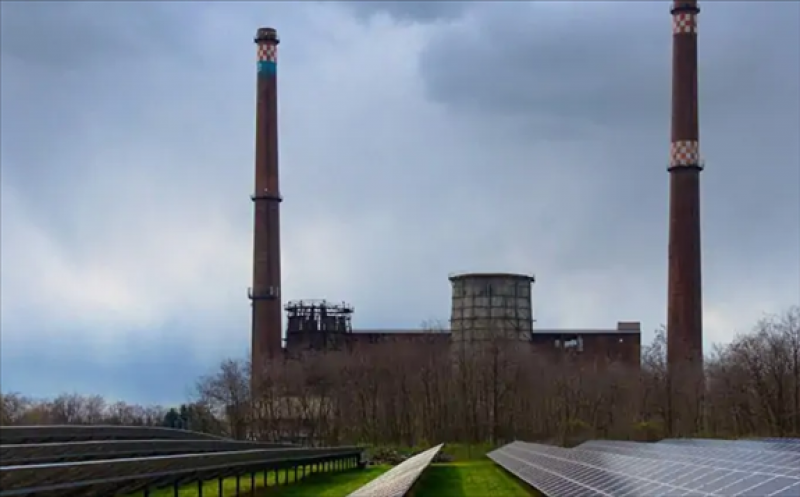KEK said it would develop infrastructure for the production of green energy, including a solar power plant of 100 MW. Prime Minister of Kosovo* Albin Kurti told the government-controlled lignite power plant operator that it needs to become a pillar in the diversification of energy sources.
 Michael Reichelt from Pixabay
Michael Reichelt from Pixabay
Kosovo Energy Corporation (KEK) said it initiated the procedure for the development of infrastructure for renewable energy projects including a solar power plant. Kosovo.Energy reported the facility would have a 100 MW capacity, which is what acting Chief Executive Officer Përparim Kabashi said during the visit of Prime Minister Albin Kurti and Minister of Economy Artane Rizvanolli to the government-owned company.
The coal producer and thermal power plant operator completed a feasibility study for the photovoltaic system. According to Kabashi, it is planning to produce one for wind power as well. KEK also revealed it is working on the reconstruction of its obsolete thermal power plant Kosova A.
KEK must be proactive, innovative in energy transition
Kurti said the power utility “must be proactive and innovative” in the diversification of energy sources by including renewables, that the Government of Kosovo* sees a central role for KEK and that it should be a pillar in the process.
The company has a positive financial balance, the prime minister noted. It exceeded the coal output plan in the first half of the year with 4.3 million tons, while last year it produced 6 TWh of electricity, he said. Kurti acknowledged the equipment is outdated, the average age of the workers is too high and that there is a shortage of engineers and promised support.
The renewed plan for the reconstruction of the Kosova A thermal power plant, which has only two active units out of five, is controversial as the World Bank and the European Commission have long been urging the government to close it down. The system was built in the 1960s and 1970s and the European Union considers the endeavor economically unfeasible.
No spare power capacity as clock is ticking for Kosova A
Kosovo* is facing an energy security challenge as a new coal-fired power plant project was scrapped last year and the deployment of renewables is too slow to replace the existing lignite capacities. It depends on the fossil fuel for almost all of its electricity.
Furthermore, the government may eventually need to impose a system equivalent to the European Union’s carbon pricing scheme. The benchmark costs of allowances for emitting one ton of carbon dioxide topped EUR 58 for the first time this week. The rising trend makes the production of power from coal less and less cost-effective every month and undermines even the plans for the revitalization of coal-fueled plants.
Serbia, North Macedonia, Montenegro and Bosnia and Herzegovina have similar challenges, though North Macedonia has an ambitious plan to replace lignite-fired thermal power plants with gas and renewable energy sources by the end of 2027. The Western Balkans are at a crossroads.
Upgrades in pipeline for Kosova B
KEK intends to reconstruct its other plant, Kosova B, and to install a system for cutting nitrogen oxide emissions to levels that would comply with European regulations. The EU pledged most of the funds for the project. During his visit, Kurti expressed confidence that Kosovo* would eliminate air pollution at some point.
Minister Rizvanolli vowed to make the energy transition fair for both KEK and its employees. The company said it is also working on an EU-backed project for five water and wastewater treatment plants for Kosova B which should enable a 15% cut in water consumption as water would be reused.